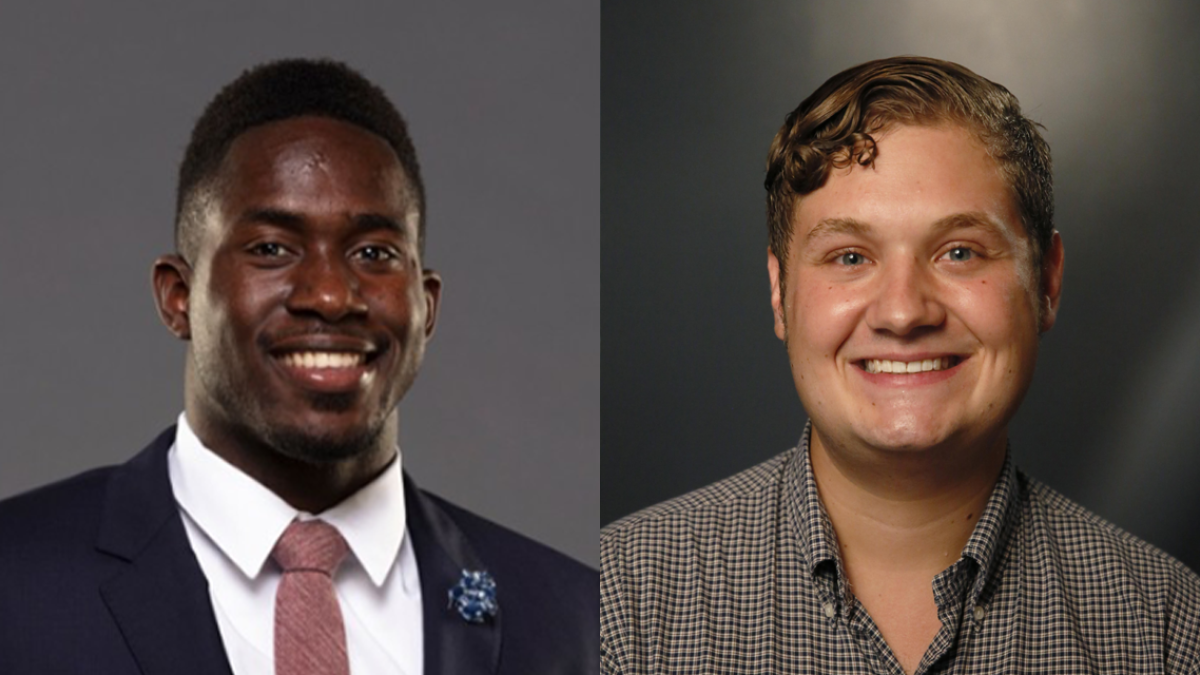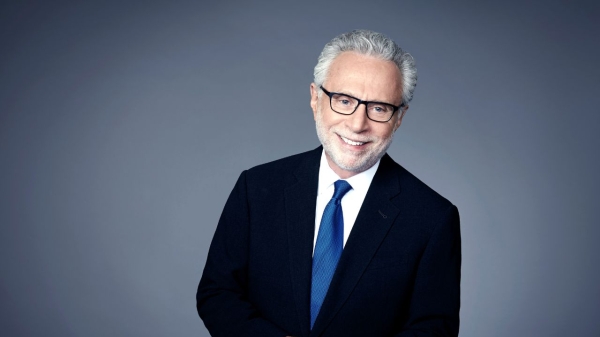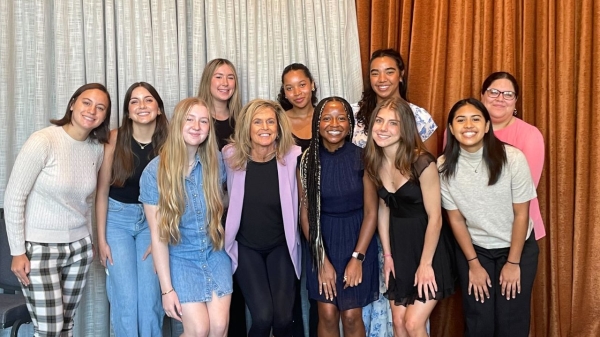Pay It Forward program provides a world of learning opportunities to ASU Law students

The Pay It Forward program provides financial assistance to help students pursue experiential opportunities. ASU Law students Oluwasegun Muse (at left) and Zachary Cooper are two beneficiaries of the program.
Experiential learning is a critical element of a legal education. Internships, externships and clerkships are offered around the globe, from law firms and courthouses to government agencies and nonprofit organizations.
To help expand that world of opportunity, the Sandra Day O’Connor College of Law at Arizona State University is helping students land dream jobs that would otherwise be cost-prohibitive — by simply asking them to help future students do the same.
The Pay It Forward program, launched in 2018, provides financial assistance to help students pursue experiential opportunities beyond the Phoenix area. In exchange, the students need only promise to donate an amount equal to the aid they received within five years of graduation, which will continue to fund the program and benefit future students.
“We recognize that learning goes far beyond the classroom, and this program aligns with our culture, because we have always been a pay-it-forward law school,” ASU Law Dean Douglas Sylvester said. “There’s a special bond with everybody in the ASU Law family: the faculty, the staff, the students, the donors and, of course, our alumni. Our graduates have always been generous in supporting our efforts to continue offering the highest quality legal education.”
Loni Burnette, the senior director of academic services at ASU Law, said the goal of the program is to help students pursue the best learning opportunities outside of the Phoenix area — whether that’s elsewhere in the state, elsewhere in the country, or an international location — without having to worry about the financial impact of housing and other expenses.
“We didn’t want students having to turn down a dream internship because they felt the need to take a paid position, or trying to work another job while in school to be able to pay for that opportunity,” Burnette said. “Students would sometimes approach us facing these difficult decisions about finances. Sometimes we were able to locate different sources of funding to help them, sometimes we weren’t, but it was always sort of an ad hoc thing.”
Zachary Cooper was one of the first beneficiaries of the program, which allowed him to take a summer internship in New York City at the Global Centre for the Responsibility to Protect.
“Without the funding, I wouldn't have been able to do it,” he said. “I would not have been able to afford flying out there and living there. It’s not cheap to live in New York.”
Cooper, now a second-year student, is seeking a career in international law. And he said the internship at the Global Centre — an organization that advocates for the responsibility of governments to protect populations against genocide, war crimes and other mass atrocities — was an invaluable experience.
“It really helped me develop my research and advocacy skills,” he said. “And I got to work in an office for the first time and get practical skills that are going to help me as I move forward. It really opened some doors for me, it was an amazing opportunity, and it wouldn’t have been possible without the program.”
One of those open doors is overseas, where Cooper is headed next for an externship. He will be conducting a corpus linguistics analysis on the first 10 years of United Kingdom Supreme Court rulings regarding equality.
It’s the kind of opportunity he will be happy to help another student seek once he is able to repay the favor.
“When you don’t have a job while you’re studying, it’s really hard to find funding,” he said. “So it will be great to be able to help someone who’s in a similar position in the future.”
Oluwasegun Muse is now a third-year student at ASU Law. Last year, he found an intriguing internship opportunity for the winter break. But it was overseas, in Tel Aviv, Israel, and he could not afford the costs on his own. The Pay It Forward program was able to provide funding, and he was able to spend his break working with the Shurat HaDin Israel Law Center, which files lawsuits on behalf of terror victims.
“The biggest hurdles to these opportunities is usually funding,” Muse said, pointing out that most law school students are already facing substantial expenses. “For me personally, without the funding, I could not have paid to go all the way to Israel and pay for lodging, food and all those things.”
Muse is leaning toward transactional work but says he’s keeping an open mind and would be happy to take the best opportunity that comes his way. And he is confident the international experience will help expand his career possibilities.
“I think it will help having that experience and having a knowledge of the outside world,” he said. “And it shows that I’m willing to go anywhere to get the job done, to help out and be part of a group, and to lend a hand wherever and whenever it’s needed.”
In fact, he looks forward to lending a hand to future students, when he repays the favor.
“This is a great program, and you’re able to pay for unique opportunities that not a lot of students get,” he said. “And with the grace period of a few years after graduation, I’ll be able to repay it, because there’s no interest. It’s not like taking a loan from a banker.”
Burnette says the program demonstrates ASU Law’s commitment to its students, delivering on the promise that they will be able to shape their individual experience.
“It encapsulates the idea of wanting our alumni to be involved in the future success of our students,” she said. “The students who are benefitting now are promising to help make sure future generations of students are able to also have these unique and wonderful opportunities. There's something really special about our students that they are happy to participate in this. And I think it says something special about our institution.”
More Law, journalism and politics

CNN’s Wolf Blitzer to receive 41st Walter Cronkite Award for Excellence in Journalism
Wolf Blitzer, the longtime CNN journalist and anchor of “The Situation Room With Wolf Blitzer,” will accept the 41st Walter…

Cronkite School launches Women Leaders in Sports Media live-learn program
Women in a new sports media program at Arizona State University got a solid game plan from a sports veteran at an Aug. 20 welcome…

ASU center to host the Pursuits of Education and Excellence Symposium
The Center for the Study of Race and Democracy (CSRD) at Arizona State University is introducing the Pursuits of Education and…